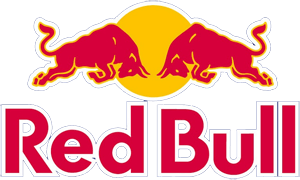Date: 19th November 2013
Twenty years ago I read Nathan Pritikin’s books on exercise and diet, as well as Covert Bailey’s, and decided that basically I was going to live on vegetables, rice, bread and tuna. I was trying to compete at a world-class level in sport climbing, where you hang off your fingers for long–or short if you can’t–periods of time. Pritikin and Bailey advised that fat made you fat, was bad for you, and the way forward was to avoid all but a few essential fats. The grocery store aisles were filling with “FAT FREE!” cookies, potato chips, etc. etc., and I believed the hype.
I did get thinner when I stopped eating all fat, red meat, etc. etc. My performance levels dropped, but I didn’t care, as I was thinner and that meant “better.” I completely lost focus on the fact that I was supposed to be a damn athlete, and not a hypoglycaemic stick figure. If I craved a stick of butter it was because I was weak, not that my body was screaming for what it needed. Eventually I realized that even if I was supposed to eat like a cow I didn’t like the way I felt, and I wasn’t getting better anymore so I basically quit competitive sport climbing and ate a more reasonable diet. Strangely, I had some of the best comp results ever competing while ten pounds heavier…
My point to this little story is this: Just because someone can make a half-convincing argument that eating or doing anything a certain way is “good” doesn’t mean it’s so. In fact, it may be total bullshit, or hype, and in the words of Public Enemy, “Don’t believe the hype.” Today we realize that maybe eggs, high-quality meat and even the odd hamburger isn’t a big deal, and may in fact help performance quite a lot. Now simple carbohydrates are the enemy… The paleo Cavemen are now saying to avoid exactly the diet that all the “science” and informed experts said was great for you 20 years ago. Both “diets” probably have some good ideas in them, but both are probably at least half hype. 20 years from now the best science/leading gurus will be saying something like, “Don’t eat any green stuff, it’s cancerous, live on coffee, vitamins and calf liver.” And that’ll be hype too.
The same goes with training. Twenty years ago circuit training was all the rage; every gym had to have a long row of weird piston-based equipment where you did movements to isolate muscle parts. This was hype, and idiocy from a function perspective. Having a gym with no equipment in it it but some de-tuned rings is likely also hype.
So, who to believe? Me, I don’t trust anyone who has something to sell based on converting me to “their” program. That’s where they’re coming from–selling you stuff. If someone lauds the “pale-ass gym diet” and sells bison pale snacks then they are selling bison snacks, full stop. Opinionated writers like me aren’t trying to sell you anything directly, but a lot of us are likely wrong.
So, how to filter out the hype, or at least not get too damaged by it? My answer is YOU, and the scoreboard of life. Here are some questions I like to ask:
Does it seem reasonable to you? Does it really help you succeed at your sport/life/WTF, or does it make you better at irrelevant things (thinner, bigger deadlift, etc etc)? Are the world’s best athletes kicking ass with the programming/diet/whatever at their sports/life/whatever? Does the person talking or writing to you actually do ANYTHING at a high level, or has he/she coached anyone who has been successful at a high level (and not a local amateur comp or something, the big leagues of whatever sport it is)? Does the “authority/guru” do a lot of whatever it is he or she says to do, with passion, commitment and integrity? If the answer to these questions is, “yes,” then likely the ideas are sort of maybe possibly valid, and maybe not totally full of hype. I might have avoided the Pritikin/Bailey hype if I’d noticed that neither one of them kicked ass at anything, their diet made me feel like shit, and that nobody who was kicking ass was following what they had to say. Oops, what a lot of wasted effort that was! And if I apply the lens of “me/scoreboard of life” to a lot athletic programming/nutrition/WTF around me then it vaporizes into the hype it is. I think I’m going to call my hype detection system “HYPE” and sell the system through DVDs and seminars, special price for you only today…
What works for the best in a sport will likely work for you if scaled appropriately. And that’s the next topic.
Posted in: Blog
So, if I’m picking up what you’re putting down you’re saying we should eat more bacon?
Seriously though, in regards to diets, I like this recommendation: “Eat Food, Not too much, Mostly Plants”.
Absolutely – I agree Leigh! I’ve never felt better and more energetic than when I increased my intake of whole, plant based foods and cut back on animal foods, especially dairy. As long as it’s a varied diet with plenty of plants, our bodies will feel better.
Definitely. I still eat a little dairy, a little meat, a little grains but like to make vegetables and some fruit at least 60 to 70% of my diet. Single biggest change for me though was cutting out Cows Milk. I used to drink a lot of it and felt lethargic through the day. My energy levels just sky rocketed when I switched from Cows Milk to Almond Milk. It works for me. I still eat cheese and yogurt though in small amounts.
It’s about this time now that Will asks us “So guys, you’re all giving a lot of dietary advice and opinions, but none of you are telling me how you’re kicking ass, did you read my blog post?” 😀
Very nice post, glad someone brought this up! I’ve had a similar experience with diets that backfired and also found that I climb better when 5lbs heavier than I wanted to be. So now I just eat different types of foods in moderation (no fast food though!) and try to keep balanced.
Thought provoking as always, Will. I use something much simpler and likely more accurate than any of the diet books … I use what my body tells me (read: The Body Speaks diet – has that been flogged yet?), and adjust accordingly (caffeine addiction excluded!) I’ve learned to eat towards endurance. Evil = lots of starch, bread, no greens, and no wild game. Indicators of being on the wrong track usually show up in inflammation, GI distress, and increased lethargy or radical weight gain/loss. I figure that thousands of years of genetic functioning encoded in the DNA makes for sound guidance. If our bodies are capable of weird and wonderful things like rewiring neurons and creating bypasses for themselves, you’d think they’d be just as savvy at reading menus and flipping the switch on how we should order. Only fad that seemed to come close to what I know works for me is the controversial eat to your blood type slant. What pointed me towards the notion that your DNA could be your most honest dietician is that I didn’t know until I was 39 that I was Catalan Spanish and have spent my entire life craving and running after all types of olives and the hottest peppers you can imagine … much to the alarm of others who can’t tolerate being in the same building when this s*it is cooking. I seem to thrive energy-wise on capsaicin. Coincidence? Not likely growing up in a family of Brits whose idea of nutrition is so sticky and bland and starchy that it could also be used as a backup craft glue or accoustic sealant for insulating vapor barriers. Love your posts.
Great post Will, it’s not only true for Athletes but anything in life. Before taking advice from anyone, ask the questions, “What are they selling” and “Are they performing highly in their discipline because of what they’re preaching”. Once you know those answers, then you should know whether or not to trust their opinion…
The exercise physiology prof at our alma mater kept repeating, “if you wanna get rich, write a diet book. Doesn’t have to make any sense …”
He was actually a proponent of looking at the peer-reviewed research (easier today via PubMed or Google Scholar). Interesting, ideas based on sports nutrition research haven’t changed all that much over the last 20 years or so. It’s fad diet scene that keeps doing 180s (thats how fads work …). But these are never supported real research. Ever.
I'm more than happy to hear your thoughts on what I've written. Please note that all comments will be moderated before publishing. Thank you for joining the conversation.



